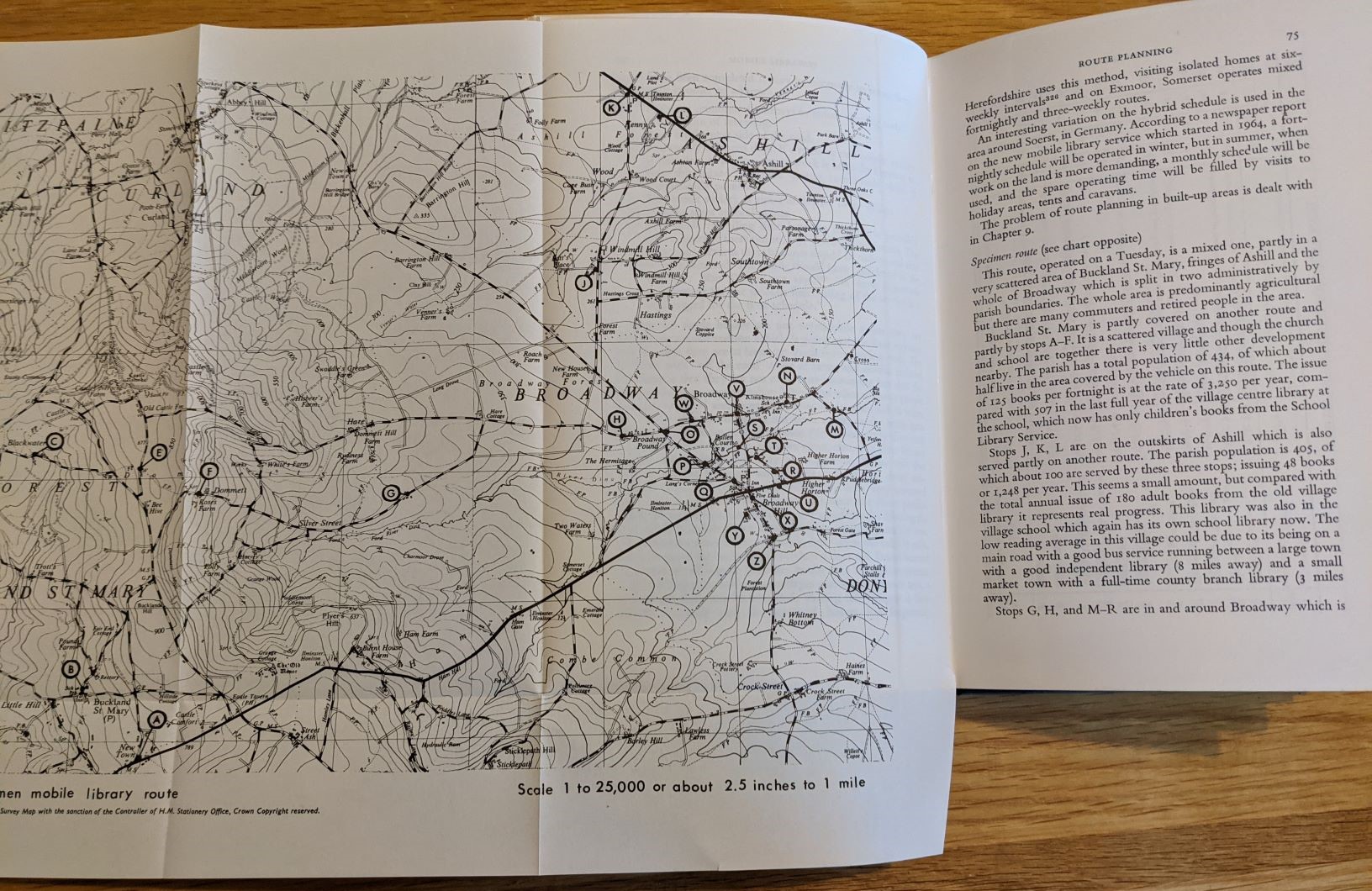Libraries Hacked 2021
With 2020 at an end I’ve been considering plans for Libraries Hacked in 2021.
Library lab
There were a few projects in the last couple of years that share features. Particularly the Mobile libraries project, Libraries at home, and Library map.
- They’re prototypes. Not finished products, but showing uses of library data
- They need help: collaboration on code, branding, user experience expertise, and data knowledge.
To bring projects like that together I launched Library lab. This is designed to collect ideas for digital applications, inviting anyone to get involved and contribute.

It would be great if 2021 could have more projects, plus developing the existing ones, and getting others involved. If you’re interested, please have an explore!
Mobile apps
I have a new iPad, a new Android phone, and an itch to do some mobile app development. Nothing extravagant, but something that makes use of the phone/tablet rather than something a responsive website could do.
One idea is to write an app that keeps track of your library loans and sends notifications when they are due to return. No sharing or posting to social media, just something for people to use. It would be ‘real’ checking, as the app would query library accounts on library websites. Then renew loans just before they go overdue. All the data (including passwords) would be stored securely on your personal device only.
I’d use it!
More reading
There are few original ideas that can’t be found in old books. My latest obtained book on Mobile libraries, “Mobile Libraries & other public library transport” (by C.R. Eastwood) was written in 1966, but doesn’t seem irrelevant in any way.

Tools change, politics and situations change, but it would be silly not to look to books for learning.
Collaboration
There are about 50 open-source code repositories on the Libraries Hacked GitHub page. Some of these are long-term projects, others one-off.
However, being open is not just about making code visible. One of the benefits is to enable collaboration.
I’ve been really pleased that twice in the last month people have contributed code to Libraries Hacked projects. It would be amazing if that continued.
Talk to the public not libraries
UK public libraries are short-staffed, under-funded, lacking in digital training, and busy. It’s not good, but it’s true. With some amazing exceptions, they have little sympathy for developing digital services, prototyping applications, or releasing open data. Not negativity for those things, just enough on their plate.
Coming to that realisation has been important. As a library user, the projects I enjoy most are ones that have a public focus rather than a library service one.
For example, I’d like to experiment with alternative library websites. Providing the usual facilities like browsing books, placing reservations, managing loans, but taking the opportunity to do these in ways they haven’t been done before.
That doesn’t require input from library services. It would be purely related to the public experience of using libraries, and makes sense to involve the public more than the library service.
Sponsorship
It’s a luxury, but I avoid library projects that involve money. The process of estimating, invoicing, and getting money is hard. I’m fortunate to have a job with normal taxed pay, and that’s enough for me. (Though if you use freelancers, please pay them promptly!).
That being said, Libraries Hacked costs money. The hosting for databases and web applications, plus some things like domain names and certificates comes to almost £1,000 a year.
GitHub offers a way for developers to be sponsored for the things they do, and I’m exploring the GitHub sponsors programme. Perhaps there could be a situation where an organisation wanted to sponsor a project and could directly fund some of the costs.
Still to be decided though. I’m not interested in ad revenue.
Mind
I don’t think I’ll be pushing for sponsorship until things look better in the current pandemic. More worthwhile at the moment would be to donate to Mind to tackle the mental health emergency.
My incredibly clever and very dear brother was found dead while living alone earlier this year. An existing mental illness had flared up during the first lockdown, and he’d found things too much to handle. I’m sure there are many such cases, 2020 will have devastated many families, but protect yourselves and take care.
I’d like to explore mental health and digital services. People often consider the best digital services to be those that achieve a function most efficiently, or simply. And there’s certainly beauty in that. But I’m not so sure anymore.
Like going travelling and taking a bus, or a train. In theory the transport should be judged on how quickly, comfortably, and cheaply it gets you to your destination. But the reality becomes that sitting on the train, looking out the window with a coffee and some music, end up being the most enjoyable aspect of going away. I suspect the same is true of using good digital services.
We don’t consider enough the mental health benefits of digital services, and how much pleasure they can give. With libraries we have such appreciation for physical aspects, smelling books, sitting quietly, community activities, all those great things. But there is as much in digital, and I’d like to think about that more.
One of my favourite open data projects is Open Benches, which crowd-sources locations and photos of memorial benches (over 17,000 across the world!). When I heard that Paul’s colleagues were getting him a memorial bench I was so happy that in future I’ll be able to go and take a photo of the bench and upload it to the site to be open data. As a digital service bringing a lot of joy it’s definitely up there with the best.
